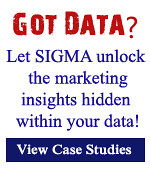
Kevin Gilbert
Marketing data, including customer and sales information, is some of the most valuable information within an organization. It is paramount that this information remain secured from tampering and theft. Companies that have experienced data loss have experienced large fines and loss of reputation, and some have gone out of business. In this series of short posts, we continue to provide tips for securing your data on various devices and at data connection touch points.
There are many ways data can leave your building: taking a customer file home on your laptop, mailing a USB drive, sending an email, using FTP, accessing company resources from offsite, and more. In this post, we’ll discuss securing data that leaves your office building on your laptop.
 LAPTOPS
LAPTOPS
If you have a laptop, you probably take it with you when you leave the office. What would happen if the laptop were lost, was stolen, or was compromised? Would confidential information become compromised? There are several things you should do to protect a laptop:
- Password protect the laptop. Every time you open the cover, you should be asked to enter a password.
- Encrypt the hard drive. There are several ways to accomplish this. One of the most popular ways is to use PGP Whole Disk Encryption, which is a product from Symantec.
- Use a theft recovery tool. One of the most popular theft recovery tools is LoJack for Laptops. With this product, you can identify where your stolen laptop is, and issue a remote command to destroy the hard drive’s contents.
- Leave your wireless and Bluetooth turned off if you are not using them. Leaving these on simply invites hackers to try to break into your laptop.
- Stay up to date with your anti-virus/anti-spam software. If your laptop is ever compromised, do not bother trying to clean it. Have an IT professional rebuild the laptop for you.
There many things that can be done to keep data secure. In this post, I have touched on some of the most common. By implementing these best practices, you can help to assure that valuable data does not fall into the wrong hands. In future posts, we’ll explore ways you can keep other devices and data access points more secure.
About the Author:
Kevin Gilbert is the Technology Manager at SIGMA Marketing Group. Kevin headed the data center virtualization project for four years and is a VMWare Certified Professional (VCP). Connect with Kevin on .
Related Articles:
Marketing Data Security: Securing Your Cell Phone or Mobile Device
